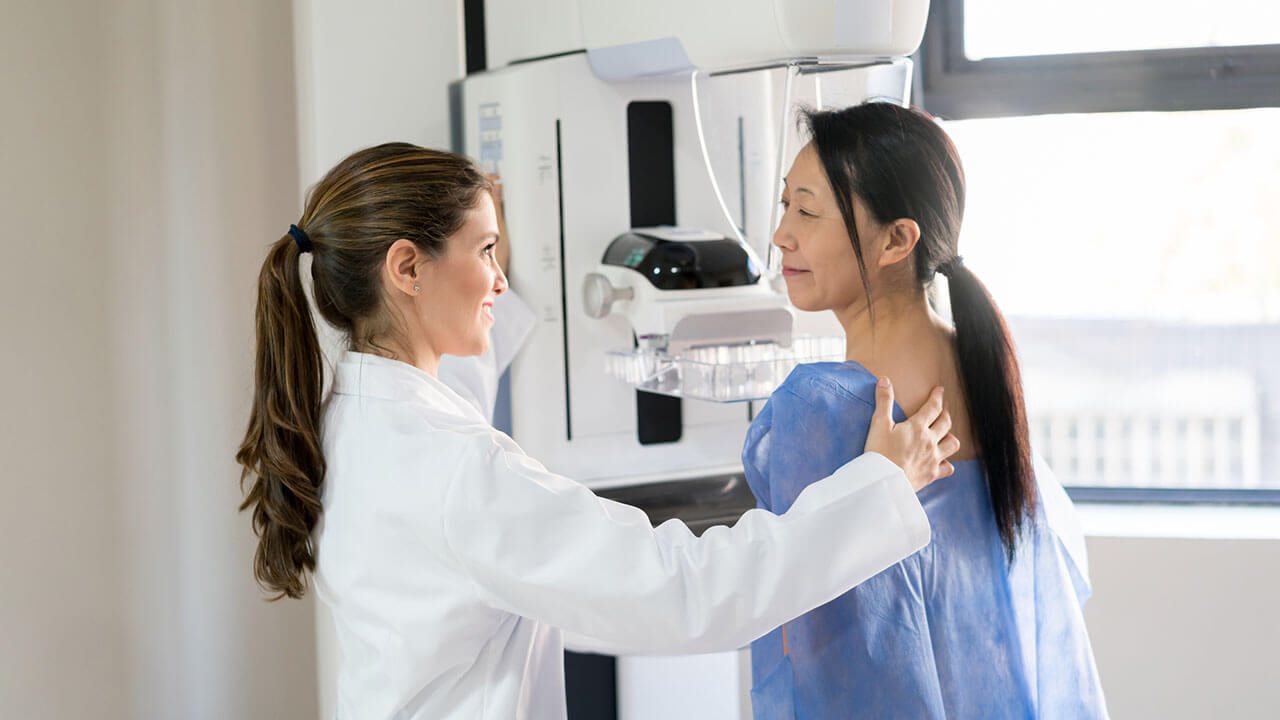The 3 stages of menopause
The dreaded hot flashes and period inconsistencies. As women, we’re familiar with it. Menopause. But did you know there are three stages of menopause? That’s why it can take several years to go through it.- Perimenopause, early/pre menopause or climacteric. This is the start of menopause. Perimenopause begins anywhere between 40 and 55 years old, usually around age 45. It normally lasts 4 to 5 years, but can range anywhere from 2 to 8 years.
- Menopause. The average age for menopause in the US is 51. Menopause is complete when you have not had a period for 12 months.
- Post menopause. Post menopause begins after your last menstrual period and continues for the remainder of a woman’s lifespan. Rest assured, symptoms will subside as your body adjusts to the changes of menopause.
How do I know if I’m starting menopause?
The most common and first noticeable sign you may be starting perimenopause, is that your periods will start to change, and this may be accompanied by changes in body temperature or hot flashes. Why?During menopause, hormone levels go up and down. Sometimes hormone levels are higher than normal, then lower than normal and then higher again. Perimenopause is when hormone levels first start to decrease.
Perimenopause begins when your ovaries become less active and make less estrogen and progesterone— hormones that help to keep your monthly periods regular. In addition, your ovaries stop releasing as many eggs. As a result, periods may be shorter, longer, more frequent or less frequent. Sometimes they can be lighter or sometimes heavier. You may have a period some months and skip others. You shouldn't notice a trend or consistent shift in one direction or the other. If this happens, contact your doctor.
More about what to expect during each stage
The significant shifts in hormone levels can affect women in various ways, not just their menstrual cycle. As early as pre-menopause:- Hormone level changes can affect the body’s core temperature and – while hot flashes are not completely understood – some women experience hot flashes.
- Some women may have difficulty sleeping and/or mood changes.
- Hormone shifts can also result in an alteration in hair growth pattern. This can result in increased (or loss of) facial hair or body hair, which should be evaluated by your doctor.
During menopause and post menopause, our production of estrogen, progesterone and testosterone hormones continue to decline. Female reproductive organs gradually shut down, and eventually our periods end. Once you have not had a period for 12 months, menopause is complete and post menopause begins.
While menopause usually happens naturally as you age, it can also happen for other reasons, including if your ovaries are removed or if you have radiation, chemotherapy, gland disorders or very poor health.
Menopause is not always a comfortable process. To find out if you’re starting menopause, best understand menopause and find ways to reduce the common discomforts, it’s important to
- listen to your body,
- talk with your doctor, and
- read credible sources.
A guide to managing menopause
Unfortunately, there’s no easy fix or “menopause manual,” but the following may help serve as a guide to manage menopause stages and symptoms.Symptoms of menopause and how to manage
| Irregular periods. Missed periods. |
|
| Hot flashes. A sudden feeling of heat that runs through your upper body and into your face. Your face turns red and you start to sweat. You may also feel panicked and short of breath. Each hot flash normally lasts two to three minutes. This can occur for 1 to 2 years and may last up to 10 years. |
|
| Night sweats. Hot flashes at night. |
|
| Trouble sleeping. You may feel restless or have trouble falling asleep. You may also have a harder time staying asleep or wake up frequently. Night sweats can contribute to this. |
|
| Mood swings. Anxiety. Depression. |
|
| Decreased or increased sex drive. |
|
| Wetting your pants. Leaking urine, especially when coughing or sneezing. |
|
| Difficulty concentrating. Poor memory. |
|
| Headaches. |
|
| Back and joint pain. |
|
| Breast tenderness. |
|
| Weight gain. 90 percent of women experience weight gain between the ages of 35 and 60, not coincidentally, during perimenopause and menopause. |
|
*Always check with your health care provider before taking medications or herbal or dietary supplements. Dietary supplements may change how prescription or over-the-counter medications work. There is also no guarantee the ingredients in dietary supplements are safe as they’re not regulated at this time. Don’t take more than the recommended amount, and try one product at a time so you know what works and what doesn’t work for you. It is important to listen to your body and if you have unpleasant side effects, stop taking the product. Keep in mind these medicines are normally recommended for a short period of time.
You can be healthy and feel good during and after menopause!
During menopause, the hormone changes we experience include too little estrogen, progesterone and testosterone, along with increased insulin. This hormonal fluctuation and imbalance can directly impact our appetite, metabolism and ultimately our weight. Talk to your doctor if you have questions about your weight, nutrition, exercise and lifestyle since this may be connected to the hormone imbalance that perimenopause and menopause can cause and maintaining a healthy weight.In addition to the physical changes of menopause, menopause just so happens to occur during a time in life when women are experiencing other life changes. Some women go from raising a family, to having an empty house. Other women may go from raising children, to raising grandchildren. These are major physical and mental changes that take energy and patience. It’s important to be mindful of these things and to take care of yourself during this time. This may mean
- Taking breaks (from activities or others).
- Asking for help.
- Trying out different activities for stress-relief.
- Making lifestyle changes in order to stay healthy - including different choices about nutrition and exercise.
- Seeing your doctor regularly for health check-ups.
The best thing you can do for yourself is focus on your health and wellness with things that are within your control. Rest assured, you can feel good about yourself while you’re going through menopause. Remember to eat healthy, exercise and relax. If you need to get to a healthy weight, talk to your health care provider about a food plan to gain or lose weight. And also talk to your doctor about other comfort measures, dietary supplements or hormone options.



